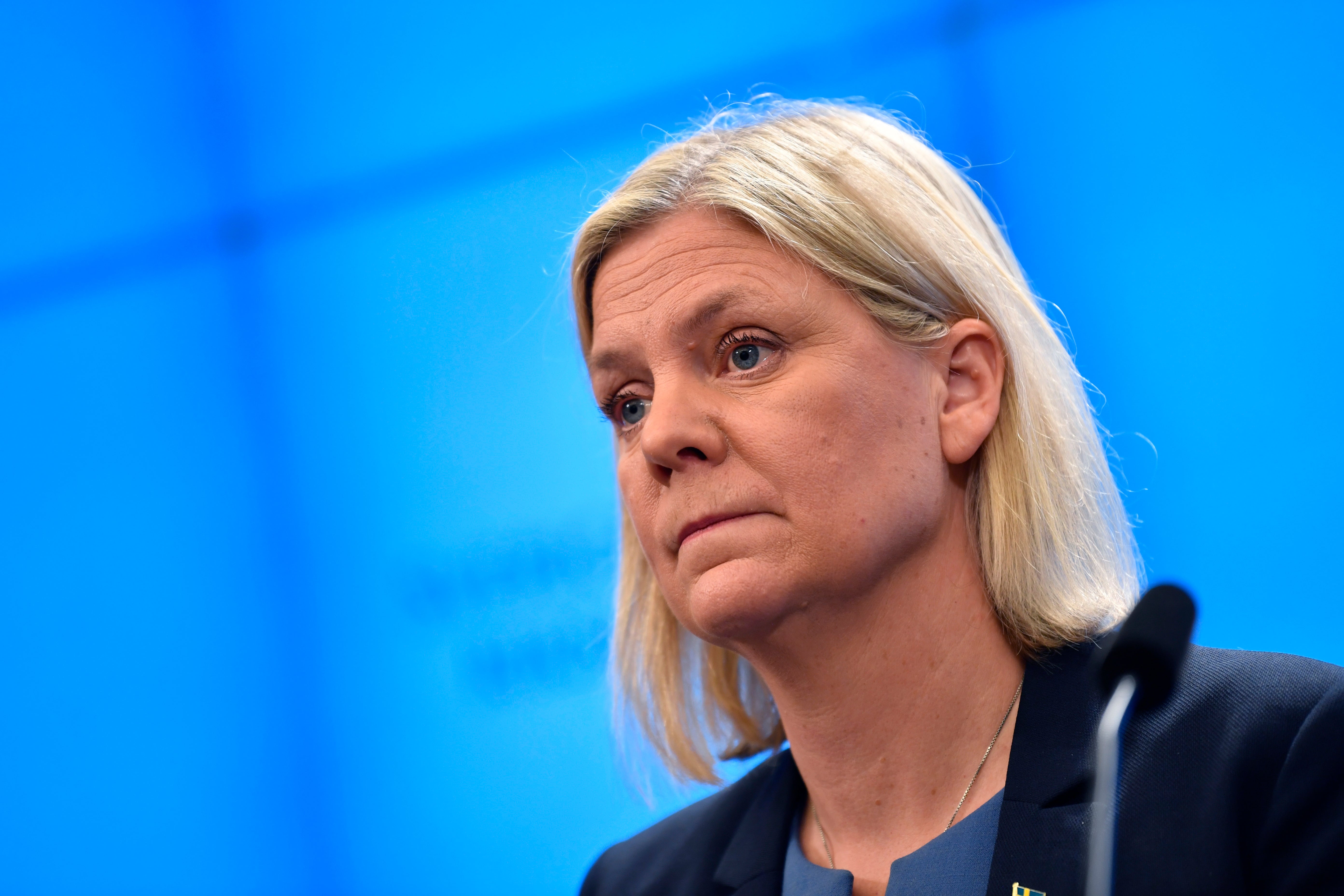After Sweden’s first female PM resigns on first day, here are five of the shortest terms in office
Magdalena Andersson’s brief leadership puts her alongside Louis XIX and Mexican president who was leader for less than an hour

Your support helps us to tell the story
From reproductive rights to climate change to Big Tech, The Independent is on the ground when the story is developing. Whether it's investigating the financials of Elon Musk's pro-Trump PAC or producing our latest documentary, 'The A Word', which shines a light on the American women fighting for reproductive rights, we know how important it is to parse out the facts from the messaging.
At such a critical moment in US history, we need reporters on the ground. Your donation allows us to keep sending journalists to speak to both sides of the story.
The Independent is trusted by Americans across the entire political spectrum. And unlike many other quality news outlets, we choose not to lock Americans out of our reporting and analysis with paywalls. We believe quality journalism should be available to everyone, paid for by those who can afford it.
Your support makes all the difference.Sweden’s first female prime minister surprisingly resigned on Wednesday just hours after she was appointed.
Magdalena Andersson stood down after her coalition partner, the Greens, quit the government and her budget failed to pass.
Ms Andersson said that she hoped to try to become prime minister again as the head of a single party government.
Her appointment was initially a notable milestone for Sweden, which has long been viewed as one of Europe’s most progressive countries when it comes to gender equality but had yet to have a woman in the top political post. For now though, it is also notable for the short amount of time she was in office.
“For me, it is about respect, but I also do not want to lead a government where there may be grounds to question its legitimacy,” Andersson told a news conference on Wednesday.
Following Ms Andersson’s resignation, here are five of the shortest terms in office in history:
Louis XIX, France
Louis Antoine ruled France for less than 20 minutes in 1830.
He spent his early life outside of France, returning to fight for the royalists against Napoleon during the 1810s.
As the oldest son of Charles X, Louis Antoine became Louis XIX when his father abdicated under pressure during the July Revolution.
However, King Louis XIX himself abdicated after just 20 minutes in favour of his nephew Henri, Duke of Bordeaux.
Pedro Lascuráin, Mexico
Considered the shortest presidency in history, Pedro Lascuráin was the leader of Mexico for less than an hour in 1913.
When President Francisco Ignacio Maderno was deposed along with his vice president, Jose Maria Pino Suarez, in a military coup, Lascuráin was next in line as the country’s foreign minister.
Lascuráin’s only act as president of Mexico was to appoint the head of the coup, General Victoriano Huerta, as Minister of Foreign Affairs.
When Lascuráin stood down approximately 45 minutes later, Huerta replaced him as president.
Michael II, Russia
Grand Duke Michael Alexandrovich ruled Russia for less than a day in 1917.
When Nicholas II abdicated on March 15, 1917, he removed his son from succession and appointed his brother Michael as his successor. Yet numerous questions surround the legality of the abdication and Michael’s reign.
After meeting with representatives from the new provisional government the day after Nicholas II abdicated, Michael issued a statement. In it, Michael deferred to the will of the people and acknowledged the government as the de facto executive, but neither abdicated nor refused to accept the throne.
There were roughly 16 to 20 hours between Nicholas II’s abdication and the signing of Michael’s manifesto.
Joseph Goebbels, Germany
Joseph Goebbels was the Chancellor of Germany for no more than a day in 1945.
In April 1945 - towards the end of the Second World War - Adolf Hitler was holed up in a bunker as Soviet troops scoured Berlin looking for him.
Hitler killed himself on 30 April, and Goebbels - as the only surviving high-level official in the Nazi party - replaced him as Germany’s chancellor.
However, the following day, Goebbels and his wife Magda fatally poisoned their six children before taking their own lives.
Carlos Luz, Brazil
Carlos Luz was acting president of Brazil for three days in 1955.
A political crisis unfolded in 1954 when President Getulio Vargas agreed to take a leave of absence and then committed suicide. Vice President Joao Cafe Filho took over and served until November 1955, when he stepped down due to illness.
As the head of the Chamber of Deputies, the presidency went to Luz.
He led for three days before being deposed by the minister of defence - with backing from the army - since they feared Luz would not make way for his elected successor Juscelino Kubitschek.


Join our commenting forum
Join thought-provoking conversations, follow other Independent readers and see their replies
Comments